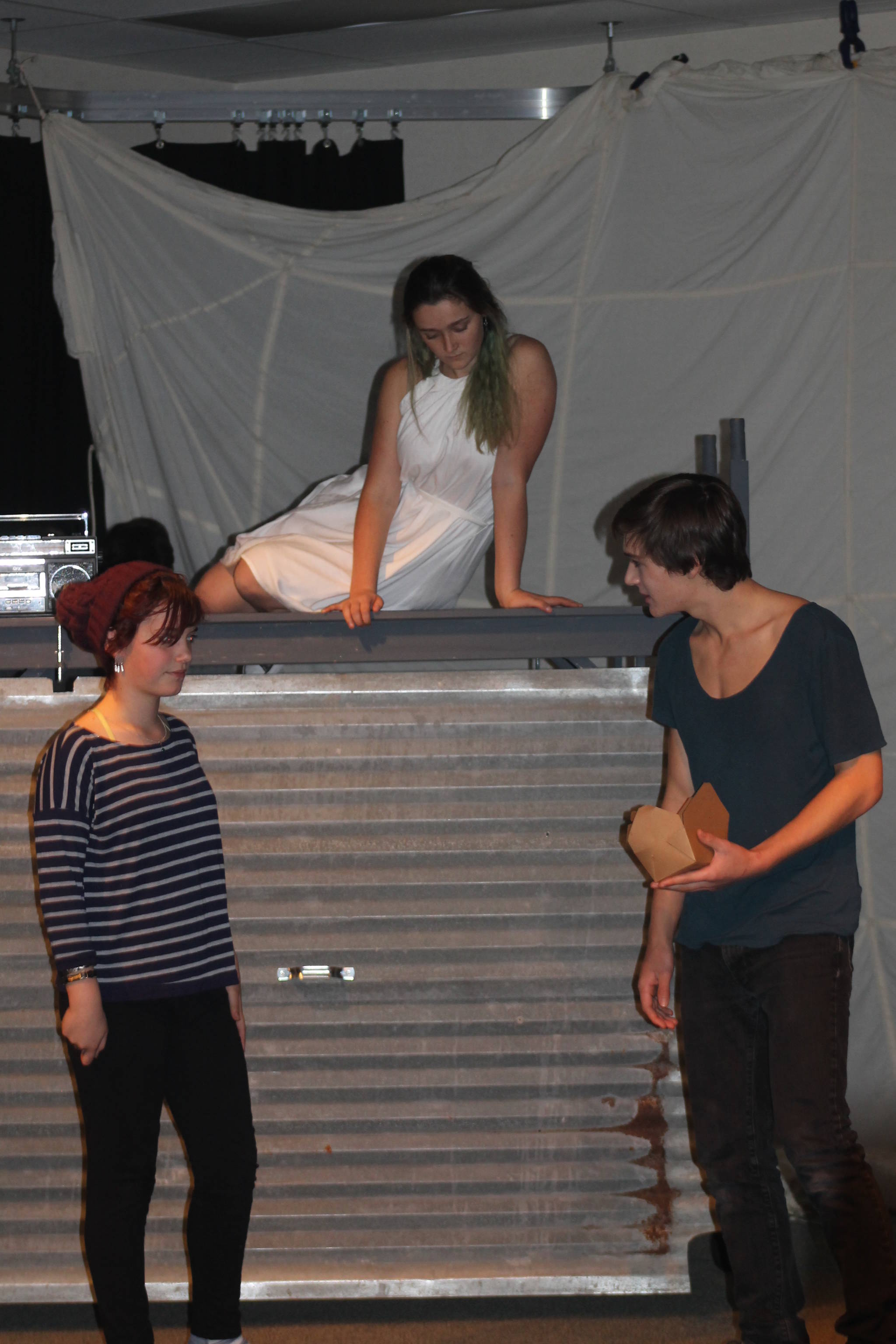Two refugees, a teenage boy and his mother, separated after fleeing their war-torn homeland.
“The country is never named, and it isn’t important to the story line,” said Krista Strutz, teacher of theater and the arts at Spring Street School International. “This play is really about the journey of self-identity that all teenagers go through, and the idea of who are you when you take cultural and geographical differences away.”
“Anon(ymous),” written by Naomi Iizuka, performed by Spring Street International School, and directed by Strutz, opens April 21, at the San Juan Community Theatre, at 7:30 p.m. The performance continues on the 22, at 2 p.m. and 7:30 p.m., as well as a matinee the 23, at 2 p.m. Tickets are $ 10.00 for adults and $5 for student reserved.
“The play really spoke to me,” said Strutz explaining she chose “Anon(ymous)” in part because she looks for plays that have meaning, are challenging and have interesting staging to experiment with. “Anon(ymous)” checked off all those categories, with the added bonus that the subject matter of war-torn countries and refugees seemed very appropriate with current events.
Based on Homer’s “Odyssey,” complete with a cyclops in the form of a cannibalistic butcher, a goddess, as well as a supporting chorus. Strutz said the play is full of magical realism. She also explained that the play is not linear, but based on his memories, and the chorus is there to help him remember his past, singing visions from his homeland.
The play begins at sea, where Anon and his mother are separated after a shipwreck. He ends up in foster care with a nice American family, all the while, he searches for his mother, attempting to find home and a sense of self.
“The students were really excited by ‘Anon(ymous)’ when they read the script,” Strutz said. “It has interesting characters, and they were really moved by the story.”
All of the cast, ages ranging from appropriately 10 to 17, stay on stage during set changes, moving the scenes quickly from ocean to box car to restaurant to butcher shop.
Strutz adds that although the main character is called Anon, he does not really have a name; it changes reflecting events he goes through, emphasizing the point that identity is questioned when the foods, music and art of your culture are displaced. In the end, Strutz said, it is everyman’s story, although most have been fortunate not to experience what Anon has.
“I hope that people are moved by his story, that the audience will take away a sense of something bigger than themselves, and have more empathy toward their fellow humans,” she said.
For tickets, visit the sjctheatre.org, or call their box office at 378-3210.



